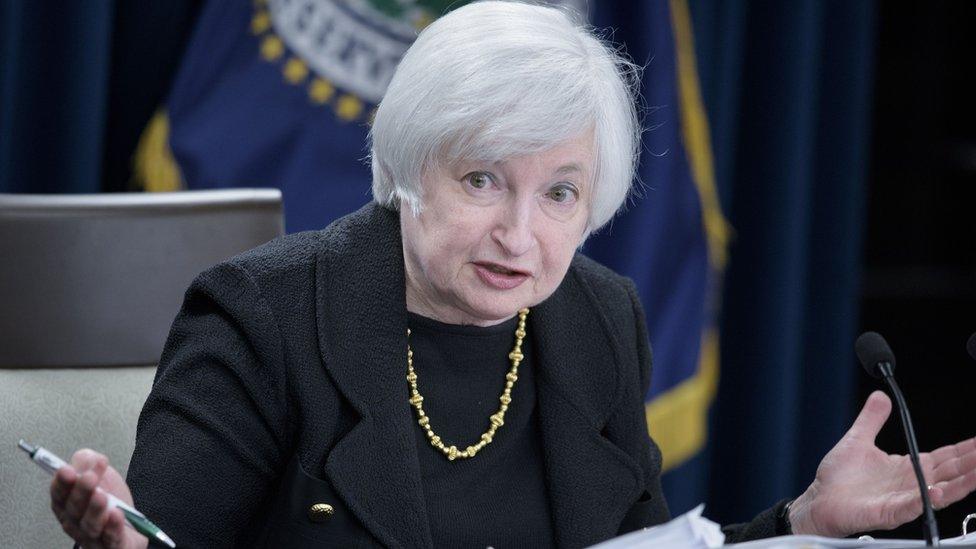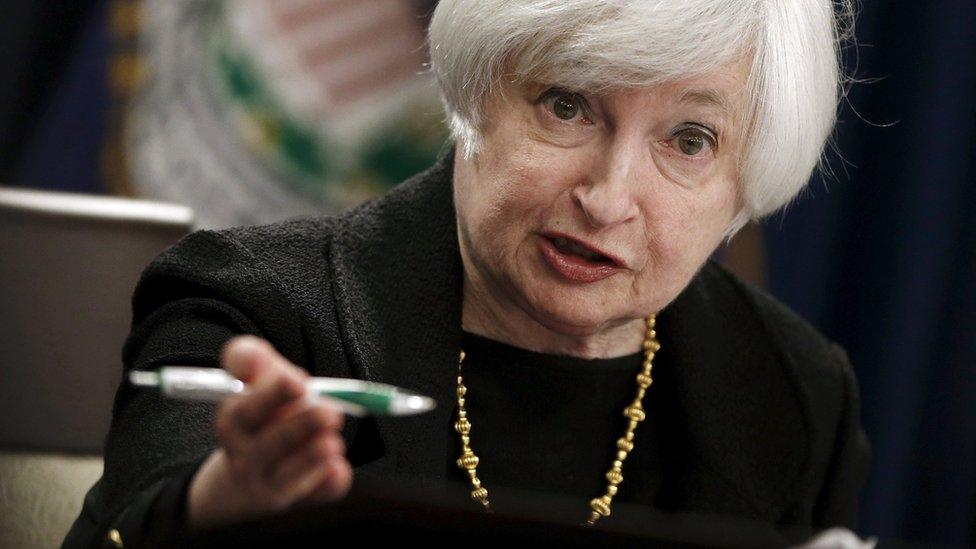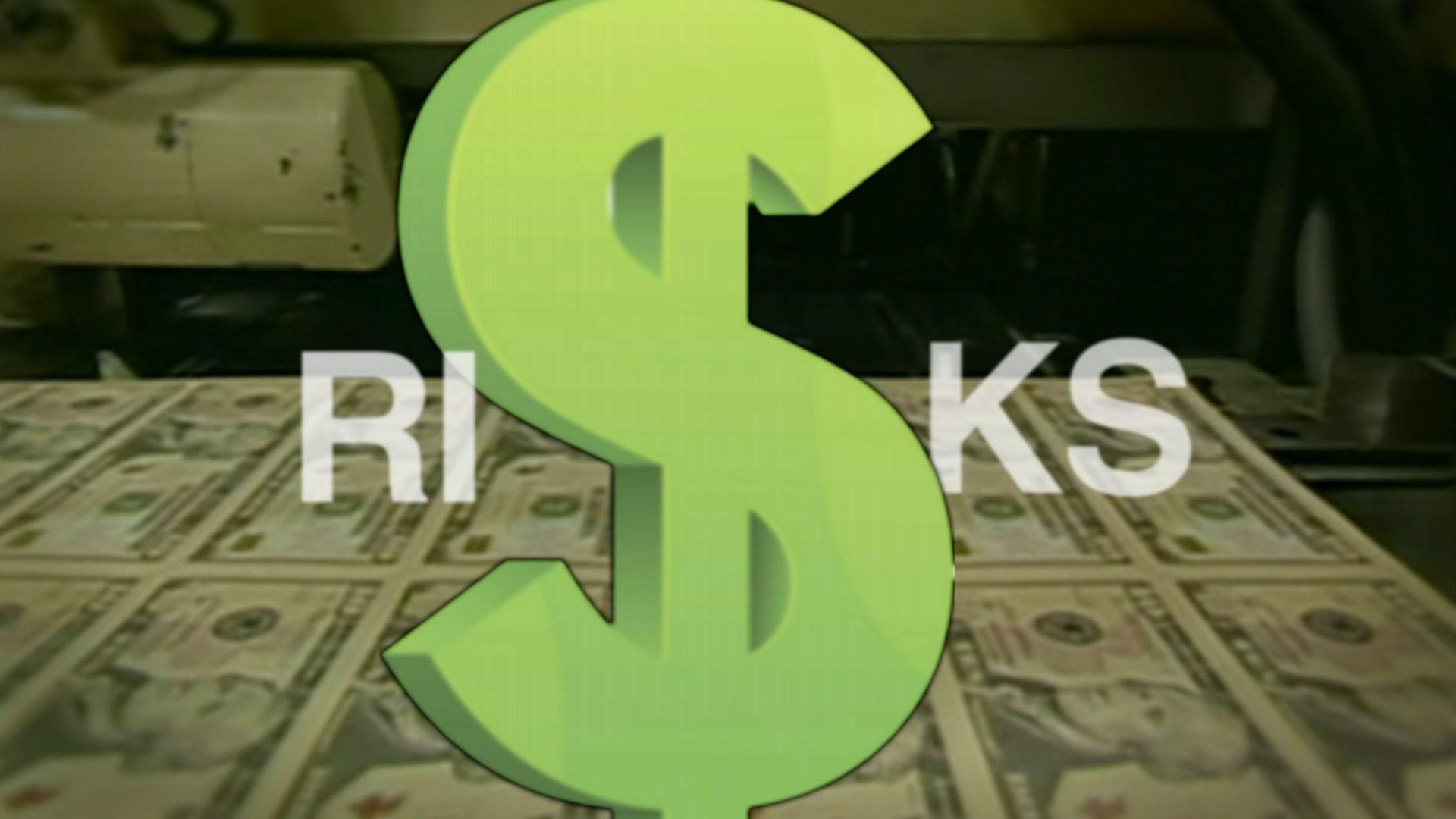Fed holds rates on 'China Wobble'?
- Published

How much of an impact did the slowing Chinese economy have on the Fed's decision?
So they didn't do it. Interest rates in the US remain near zero yet again and we're now waiting for the next Fed meeting - or even the one after that - to get a sense of what the Fed might do.
Sigh of relief? You would think that wouldn't you. Conventional economics tells you that low interest rates means people should be able to go out and spend, and that will boost growth.
In Asia - a higher US rate rise would have been difficult for many Asian economies because the US dollar would have strengthened and they would have had to borrow more money to pay off their US debts.
So no rate rise should be a good thing - right?
Except that it's not - or at least not when you look more closely at what the US Fed said was the reason behind its decision to put a hold on rates.
Janet Yellen, the Federal Reserve Chair said: "The outlook abroad appears to have become more uncertain of late. And heightened concerns about growth in China and other emerging markets economies have led to notable volatility in financial markets."
Economists are calling it the "China Wobble". Not an Asian dance move, but the impact of the world's second largest economy on the global economic outlook.
That the global economy is impacted by what happens in China should come as no surprise. We're all increasingly connected these days. But now the US Fed is effectively saying - look guys, we don't know how bad it's getting out there, and it could hurt our exports and we just need more time to look at the data and figure things out.
So where does that leave us? Waiting for the next Fed decision - and investors will now refocus their attention on the data coming out of China in the coming weeks and months.
That means more uncertainty - and more volatility ahead.
- Published17 September 2015

- Published17 September 2015

- Published17 September 2015
